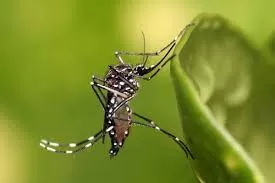
Scientists from the National University of Singapore (NUS) have identified a pupal cuticle protein in Aedes aegypti mosquitoes, the carriers of the dengue virus, offering potential for the prevention and control of dengue fever. Published in Protein Science, the research delves into the structure and function of this protein found in the mosquito’s exoskeleton. The study suggests that the pupal cuticle protein could serve as a target for developing innovative methods to control dengue virus infection, paving the way for novel antiviral strategies and contributing to the understanding of mosquito-virus interactions.
Dengue fever, caused by the dengue virus, affects millions globally, with over 5 million reported cases in 2023. The absence of specific treatments and limited vaccine options necessitates alternative approaches to combat the spread of the virus. The newly discovered pupal cuticle protein could be a game-changer, acting as a potential target for developing inhibitors or antibodies to control dengue virus infection.
Professor J Sivaraman from the NUS Faculty of Science highlighted the significance of the findings, emphasizing the protein’s potential as a target for developing antiviral strategies. The researchers utilized Nuclear Magnetic Resonance (NMR) spectroscopy to analyze the molecular structure of the cuticle protein, revealing a disordered structure. This technique allowed the team to explore the molecular interactions between the cuticle protein and the dengue virus, leading to the suggestion that the protein could block dengue virus infection.
The next phase of research involves uncovering how pupal cuticle proteins prevent dengue virus infection in both mosquitoes and mammals. Additionally, the researchers aim to explore the possibility of utilizing pupal cuticle proteins as a new antiviral strategy not only against the dengue virus but also in combating other flaviviruses such as West Nile virus and yellow fever virus. This breakthrough offers hope for innovative approaches to control mosquito-borne diseases, potentially transforming the landscape of dengue virus prevention.










